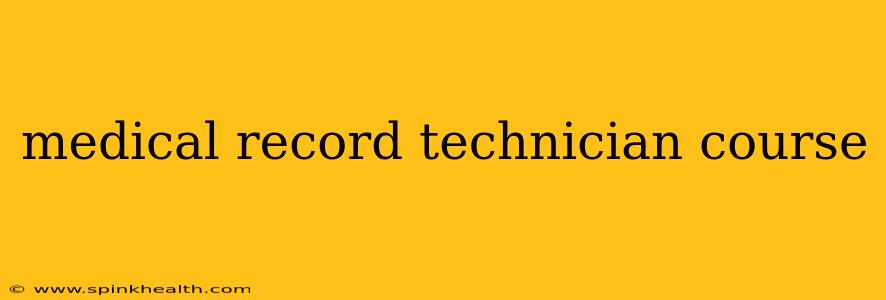The world of healthcare is a dynamic and ever-evolving landscape, demanding skilled professionals at every level. One crucial role, often overlooked but profoundly important, is that of the Medical Record Technician (MRT). These unsung heroes are the guardians of patient health information, ensuring accuracy, accessibility, and security. If you're drawn to the intricacies of healthcare and possess a keen eye for detail and organizational prowess, a medical record technician course might be the perfect path for you.
This isn't just about filing papers; it's about contributing directly to patient care. Imagine being a vital link in the chain, ensuring doctors have the right information at the right time to make critical decisions. That's the power of a career as a Medical Record Technician. This guide will unravel the mysteries of MRT courses, helping you navigate the options and embark on your journey towards a rewarding career.
What Does a Medical Record Technician Do?
Before diving into the courses, let's understand the role itself. Medical Record Technicians are responsible for maintaining the accuracy and integrity of patient health information. This includes:
- Maintaining Patient Records: This involves organizing, filing, and retrieving medical records, both physical and electronic. Think of it as being a librarian, but for incredibly sensitive and important information.
- Data Entry and Coding: Transcribing physician notes, lab results, and other crucial data into the electronic health record (EHR) system is a core function. This requires precision and attention to detail.
- Medical Coding: Assigning standardized codes (like ICD-10 and CPT) to diagnoses and procedures is vital for billing and statistical analysis. This aspect often requires specialized training.
- Record Release and Confidentiality: MRTs ensure patient information is released only to authorized individuals, strictly adhering to HIPAA regulations. This responsibility highlights the ethical considerations of the job.
- Quality Control: Regular audits and checks are performed to maintain data accuracy and identify areas for improvement in record-keeping processes.
What are the Different Types of Medical Record Technician Courses?
The path to becoming an MRT varies, depending on your existing qualifications and career goals. Some common options include:
- Associate Degree Programs: These two-year programs provide a comprehensive education, covering all aspects of MRT work, often including clinical experience.
- Certificate Programs: Shorter programs, typically lasting a few months to a year, focus on specific skills and are ideal for those already working in healthcare or seeking to upskill.
- Online Courses: Flexibility is key! Online options offer self-paced learning and accommodate diverse schedules. However, ensure the program is accredited and meets your specific needs.
- On-the-Job Training: Some healthcare facilities offer training to existing employees, providing practical experience alongside theoretical learning.
How Long Does it Take to Become a Medical Record Technician?
The time commitment depends on the chosen course type. Certificate programs may be completed within a year, while associate degrees require two years of study. On-the-job training varies significantly in duration.
What Certifications are Available for Medical Record Technicians?
Several certifications can enhance your professional credentials and career prospects. The most recognized include:
- Registered Health Information Technician (RHIT): Awarded by the American Health Information Management Association (AHIMA).
- Certified Medical Coder (CMC): Often pursued by MRTs focusing on medical coding.
- Certified Coding Specialist (CCS): Another recognized certification in medical coding.
What are the Job Outlook and Salary Expectations for Medical Record Technicians?
The demand for skilled MRTs is consistently strong, due to the increasing reliance on electronic health records and the growing healthcare sector. Salary varies by location, experience, and certification level.
Is a Medical Record Technician Course Right for Me?
If you're organized, detail-oriented, and fascinated by the inner workings of the healthcare system, a career as a Medical Record Technician might be an excellent fit. The role demands accuracy, discretion, and a commitment to maintaining patient confidentiality. If these qualities resonate with you, then explore the various MRT courses available and embark on your path to a fulfilling career in healthcare. Remember to research accredited programs and understand the specific requirements for certification in your area.

